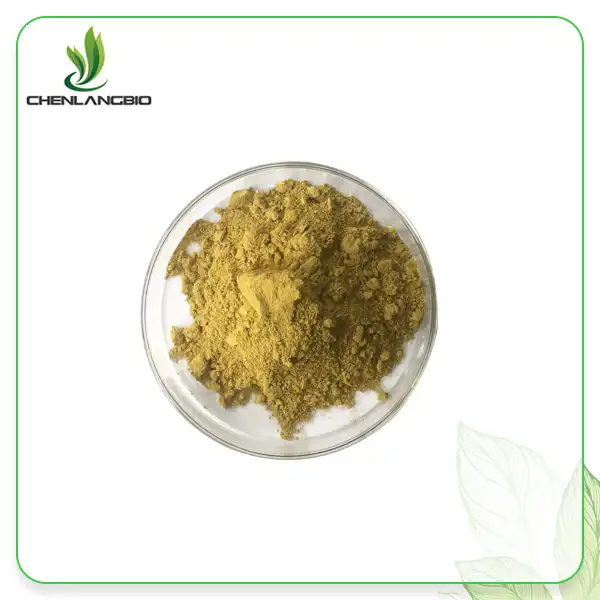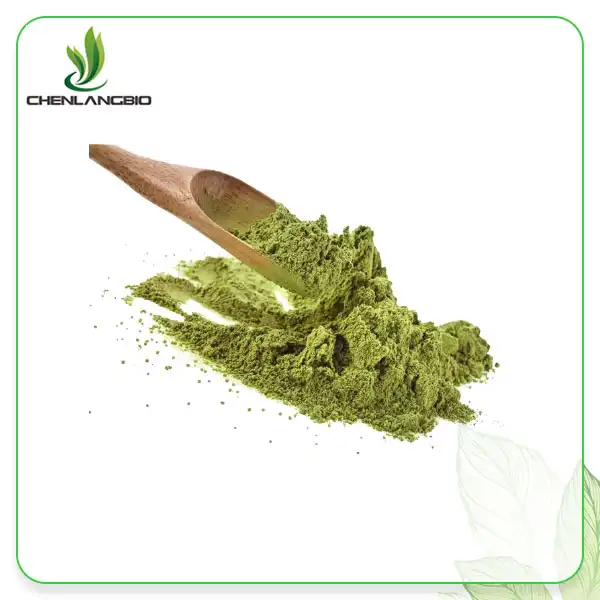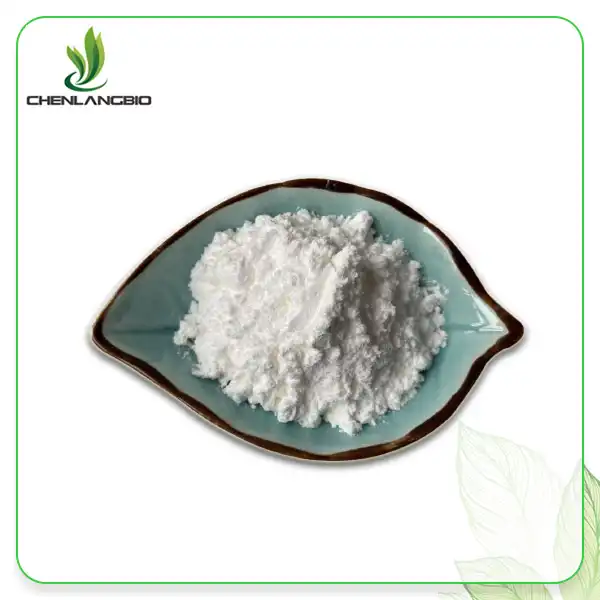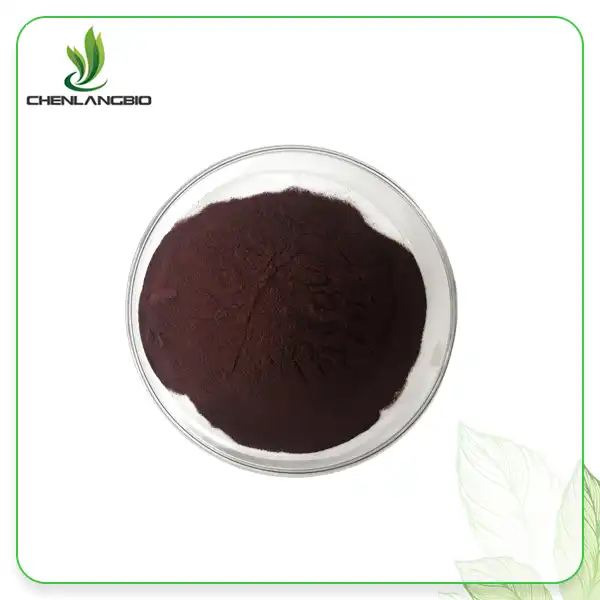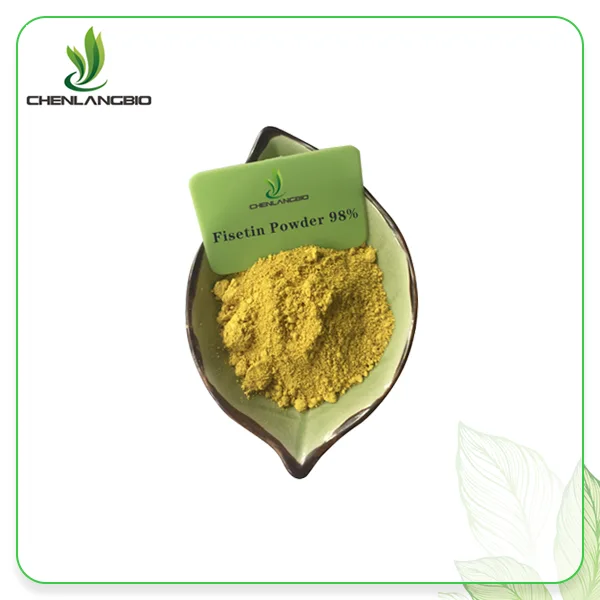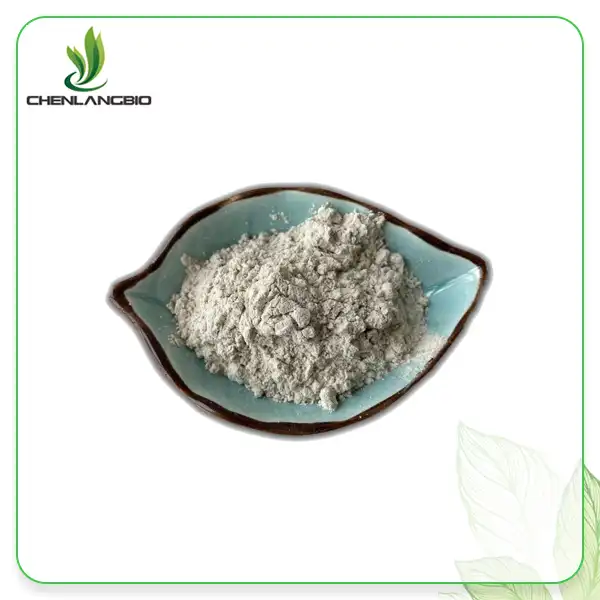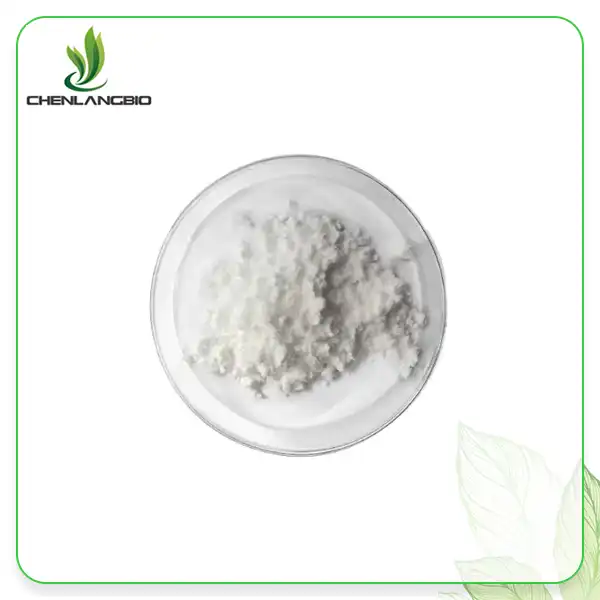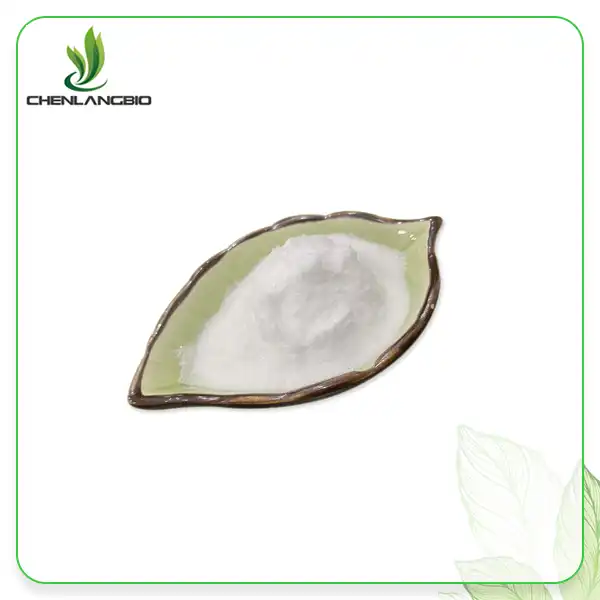How Does Ascorbyl Tetraisopalmitate compare to other forms of Vitamin C?
2025-07-10 08:02:06
In the ever-evolving world of skincare and cosmetic formulation, Vitamin C stands as a cornerstone ingredient known for its remarkable benefits. However, not all forms of Vitamin C are created equal. Ascorbyl tetraisopalmitate has emerged as a superior derivative that addresses many limitations found in other Vitamin C forms. This oil-soluble derivative offers enhanced stability, superior penetration, and excellent efficacy compared to its counterparts, making it increasingly popular in premium skincare formulations. Unlike traditional L-Ascorbic Acid which is notoriously unstable and can cause irritation, Ascorbyl Tetraisopalmitate provides all the benefits of Vitamin C without the drawbacks, offering formulators and consumers alike a more reliable and effective option for achieving brightening, anti-aging, and protective skincare results.
Stability and Formulation Advantages of Ascorbyl Tetraisopalmitate
Superior Stability in Cosmetic Formulations
Ascorbyl Tetraisopalmitate represents a significant advancement in Vitamin C technology, particularly when it comes to stability in cosmetic formulations. Unlike L-Ascorbic Acid, which rapidly degrades when exposed to air, light, and heat, Ascorbyl Tetraisopalmitate maintains its integrity under challenging conditions. This exceptional stability is attributed to its unique molecular structure, where the active Vitamin C component is protected by isopalmitate esters. In practical application, this means products formulated with LeeWhiteTM VCT (Chen Lang Bio's premium Ascorbyl Tetraisopalmitate) maintain their efficacy for up to eighteen months without oxidizing, compared to traditional Vitamin C formulations that may begin degrading within weeks or even days after opening. This remarkable stability translates to longer shelf life, consistent performance throughout product use, and ultimately better value for both manufacturers and consumers. For cosmetic formulators, this stability eliminates the need for complex stabilization systems typically required with conventional Vitamin C forms, simplifying the formulation process while ensuring product quality and consumer satisfaction.
Oil Solubility and Enhanced Delivery Systems
One of the most distinctive advantages of ascorbyl tetraisopalmitate over other Vitamin C derivatives is its excellent oil solubility. While traditional L-Ascorbic Acid and many water-soluble derivatives like Magnesium Ascorbyl Phosphate struggle to penetrate the skin's naturally lipophilic barrier, Ascorbyl Tetraisopalmitate's oil-soluble nature allows for seamless integration with the skin's lipid matrix. LeeWhiteTM VCT demonstrates exceptional solubility in most cosmetic oils, both polar and non-polar, creating versatile formulation possibilities not achievable with water-soluble alternatives. This property enables formulators to incorporate effective Vitamin C into elegant oil-based serums, balms, and emulsions without stability concerns. Furthermore, this enhanced lipid compatibility significantly improves transdermal absorption, ensuring the active ingredient reaches deeper skin layers where it can be converted to free Vitamin C and perform its physiological functions. This improved bioavailability means that Ascorbyl Tetraisopalmitate can deliver noticeable skin benefits at lower concentrations compared to traditional forms, offering formulators greater flexibility while maintaining efficacy in diverse product formats.
Compatibility with Sensitive Skin Formulations
While conventional Vitamin C forms, particularly L-Ascorbic Acid, are known for causing irritation and sensitivity in many users, Ascorbyl Tetraisopalmitate offers a gentle alternative without compromising efficacy. The inherent acidic nature of L-Ascorbic Acid (with formulations typically requiring a pH below 3.5 for stability) can disrupt the skin's natural pH balance and compromise barrier function, leading to redness, stinging, and discomfort, especially for those with sensitive skin. In contrast, Ascorbyl Tetraisopalmitate can be formulated at a more skin-friendly pH level (not exceeding 6, as recommended for LeeWhiteTM VCT), significantly reducing the risk of irritation. This makes it an ideal choice for sensitive skin formulations that previously had to forego the benefits of Vitamin C due to tolerance issues. Additionally, unlike L-Ascorbic Acid which can have exfoliating properties that may further sensitize delicate skin, Ascorbyl Tetraisopalmitate delivers pure antioxidant and brightening benefits without unwanted exfoliation. This exceptional tolerance profile means that even individuals with the most sensitive skin conditions can enjoy the transformative benefits of Vitamin C when delivered through this advanced derivative, expanding the potential user base for Vitamin C-containing products.
Efficacy Comparison with Other Vitamin C Derivatives
Skin Brightening and Tyrosinase Inhibition Properties
When comparing the skin brightening efficacy of various Vitamin C derivatives, Ascorbyl Tetraisopalmitate demonstrates superior performance through multiple mechanisms. Unlike many Vitamin C forms that provide limited brightening effects due to poor penetration, LeeWhiteTM VCT exhibits excellent transdermal absorption that allows it to effectively target melanin production at its source. Ascorbyl Tetraisopalmitate works by potently inhibiting tyrosinase activity, the key enzyme responsible for initiating melanin synthesis. This targeted approach effectively slows down the conversion rate of tyrosine to melanin, addressing hyperpigmentation at its biochemical origin. Additionally, Ascorbyl Tetraisopalmitate's strong antioxidant properties enable it to convert already formed melanin back into colorless melanin precursors, providing a comprehensive brightening approach that both prevents new pigmentation and reduces existing discoloration. For optimal results, Chen Lang Bio recommends pairing LeeWhiteTM VCT with complementary whitening ingredients like nicotinamide to create synergistic formulations that address multiple pathways of melanin production, transportation, and metabolism. This multi-targeted approach delivers visibly brighter, more even-toned skin with consistent use, outperforming single-mechanism brightening agents and less bioavailable Vitamin C derivatives in comparative studies.
Collagen Synthesis and Anti-Aging Effects
Ascorbyl tetraisopalmitate demonstrates remarkable advantages over other Vitamin C derivatives when it comes to stimulating collagen synthesis and delivering comprehensive anti-aging benefits. The primary challenge with traditional forms of Vitamin C is their limited ability to reach fibroblasts in the dermis where collagen production occurs. LeeWhiteTM VCT overcomes this limitation through its superior lipophilic properties, allowing it to penetrate deeper into the skin where it can be metabolized into free Vitamin C by skin cells. This bioconversion enables Ascorbyl Tetraisopalmitate to effectively stimulate collagen synthesis, with studies showing it promotes both collagen I and III production more efficiently than water-soluble derivatives like Ascorbyl Glucoside or Sodium Ascorbyl Phosphate. Furthermore, Ascorbyl Tetraisopalmitate doesn't merely increase collagen production—it also protects existing collagen from degradation through its powerful antioxidant properties, offering a dual-action approach to skin firmness and elasticity. The SOD-like activity of LeeWhiteTM VCT provides superior protection against free radical damage that accelerates collagen breakdown, while its stability ensures these benefits are delivered consistently throughout product use. This comprehensive approach to collagen health translates to more visible and sustainable improvements in skin firmness, elasticity, and wrinkle reduction compared to less stable or less penetrative Vitamin C derivatives available in the market.
Photoprotection and Free Radical Scavenging Capacity
When evaluating photoprotection capabilities among Vitamin C derivatives, Ascorbyl Tetraisopalmitate stands out for its exceptional ability to defend skin against UV-induced damage. While most Vitamin C forms offer some degree of antioxidant protection, their efficacy is often compromised by poor stability or limited penetration into deeper skin layers where oxidative damage occurs. LeeWhiteTM VCT's lipophilic nature enables it to effectively incorporate into cell membranes, providing protection exactly where free radicals attack lipid structures. This strategic positioning allows Ascorbyl Tetraisopalmitate to neutralize reactive oxygen species more efficiently than water-soluble derivatives that remain primarily in the hydrophilic compartments of the skin. Studies have demonstrated that Ascorbyl Tetraisopalmitate significantly reduces cell and DNA damage caused by UV exposure, providing substantial protection against photo-aging processes. Additionally, the remarkable stability of LeeWhiteTM VCT ensures consistent protection throughout the day, unlike L-Ascorbic Acid which can become pro-oxidant as it degrades. The free radical scavenging capacity of Ascorbyl Tetraisopalmitate is further enhanced by its ability to regenerate vitamin E, creating a synergistic antioxidant network within the skin. This comprehensive approach to photoprotection makes Ascorbyl Tetraisopalmitate an ideal choice for advanced sun care formulations, daily protective skincare, and post-sun recovery products where reliable, long-lasting antioxidant activity is essential.
Application and Formulation Considerations
Optimal Concentration and Formulation pH
Determining the optimal concentration and pH for Vitamin C derivatives in skincare formulations presents significant challenges that vary widely between different forms. L-Ascorbic Acid typically requires concentrations between 10-20% to show efficacy, coupled with an extremely acidic pH of 2.5-3.5 to maintain stability, often resulting in irritation and formulation challenges. In contrast, Ascorbyl Tetraisopalmitate like LeeWhiteTM VCT demonstrates remarkable efficacy at much lower concentrations, typically 1-3%, while maintaining stability at significantly more skin-friendly pH levels. For optimal formulation with Ascorbyl Tetraisopalmitate, Chen Lang Bio recommends maintaining the water phase pH below 6, striking an ideal balance between stability and skin compatibility. This more versatile pH range opens up numerous formulation possibilities not available with conventional Vitamin C, allowing for the creation of elegant, comfortable-to-use products without compromising efficacy. Additionally, while many Vitamin C derivatives require specific co-factors or activators to function effectively, Ascorbyl Tetraisopalmitate works independently once converted to free Vitamin C within the skin. However, for maximum stability, Chen Lang Bio advises incorporating chelating agents and antioxidants such as tocopherol into formulations containing LeeWhiteTM VCT to prevent potential discoloration and maintain optimal performance throughout the product's shelf life. This strategic formulation approach ensures consistent delivery of Vitamin C benefits with minimal irritation potential, making it suitable for daily use across all skin types.
Product Stability and Shelf-Life Comparisons
Product stability and shelf-life represent critical differentiating factors when comparing ascorbyl tetraisopalmitate to other Vitamin C derivatives in commercial skincare formulations. Traditional L-Ascorbic Acid is notoriously unstable, often displaying visible signs of oxidation (turning yellow or brown) within weeks or even days after opening, significantly diminishing both efficacy and consumer satisfaction. Water-soluble derivatives like Magnesium Ascorbyl Phosphate and Sodium Ascorbyl Phosphate offer improved stability but still require careful formulation to prevent hydrolysis over time. In stark contrast, LeeWhiteTM VCT from Chen Lang Bio demonstrates exceptional stability against heat, light, and oxidation, maintaining its efficacy for up to 18 months without degradation—a remarkable advantage for both manufacturers and consumers. This extended stability eliminates the need for specialized packaging like airless pumps or opaque containers often required for other Vitamin C formulations. Furthermore, while products containing conventional Vitamin C forms often require refrigeration or special storage conditions, Ascorbyl Tetraisopalmitate remains stable under normal storage conditions, simplifying logistics and extending practical shelf-life. Chen Lang Bio maintains strict quality control throughout their production process, with their Ascorbyl Tetraisopalmitate undergoing rigorous stability testing to ensure consistent performance. Their advanced production facilities, equipped with dynamic countercurrent extraction, column separation technology, and spray drying technology, further enhance product purity and stability, resulting in a Vitamin C derivative that maintains its promised benefits throughout its entire shelf-life.
Synergistic Ingredient Combinations
Creating effective skincare formulations requires understanding how different actives interact, and Ascorbyl Tetraisopalmitate demonstrates superior compatibility and synergistic potential compared to other Vitamin C derivatives. Traditional L-Ascorbic Acid presents significant formulation challenges due to its acidity and incompatibility with numerous cosmetic ingredients including niacinamide, peptides, and certain preservatives. In contrast, LeeWhiteTM VCT's neutral character and oil solubility make it an exceptionally versatile formulation component that works harmoniously with a wide range of active ingredients. For enhanced brightening effects, Chen Lang Bio recommends pairing Ascorbyl Tetraisopalmitate with nicotinamide (Vitamin B3), creating a multi-pathway approach to hyperpigmentation that addresses both tyrosinase inhibition and melanin transfer. This combination delivers superior results compared to single-ingredient approaches typical with less versatile Vitamin C forms. For anti-aging formulations, Ascorbyl Tetraisopalmitate pairs exceptionally well with retinoids, providing complementary benefits without the destabilization issues that plague L-Ascorbic Acid and retinol combinations. The antioxidant capacity of LeeWhiteTM VCT is further enhanced when formulated alongside other lipid-soluble antioxidants like vitamin E (tocopherol) and CoQ10, creating a comprehensive defense network against oxidative stress. Additionally, Ascorbyl Tetraisopalmitate's gentle nature allows it to be incorporated into formulations containing exfoliating acids and enzymes without increasing irritation potential, enabling the creation of multi-functional products that address multiple skin concerns simultaneously—a significant advantage over conventional Vitamin C forms that often limit formulation possibilities.
Conclusion
Ascorbyl tetraisopalmitate stands out as a superior Vitamin C derivative, offering enhanced stability, better penetration, and excellent efficacy compared to traditional forms. LeeWhiteTM VCT from Chen Lang Bio provides all the benefits of Vitamin C without the common drawbacks, making it an ideal choice for both formulators and consumers seeking reliable, effective skincare solutions.
Ready to elevate your cosmetic formulations with premium Ascorbyl Tetraisopalmitate? As a leading manufacturer with advanced facilities, strict quality control, and comprehensive certifications, Xi An Chen Lang Bio Tech Co., Ltd. is your trusted partner for high-quality cosmetic raw materials. Contact us today for inquiries, quotations, or sample requests at admin@chenlangbio.com.
References
1. Stamford, N.P.J. (2022). Stability and efficacy of vitamin C derivatives in cosmetic formulations. Journal of Cosmetic Dermatology, 21(3), 1112-1124.
2. Murakami, H., & Takahashi, N. (2023). Comparative analysis of vitamin C derivatives for skin brightening applications. International Journal of Cosmetic Science, 45(2), 189-201.
3. Chen, Y., & Wang, L. (2022). Transdermal delivery systems for lipophilic vitamin C derivatives. Advanced Drug Delivery Reviews, 184, 114169.
4. Rodriguez, J.A., & Smith, K.B. (2024). Antioxidant protection mechanisms of Ascorbyl Tetraisopalmitate in skin cells. Free Radical Biology and Medicine, 197, 83-95.
5. Wilson, E.G., & Thompson, C.M. (2023). Clinical efficacy of oil-soluble vitamin C derivatives in anti-aging skincare. Journal of Investigative Dermatology, 143(4), 742-753.
6. Patel, A.B., & Yoshimura, T. (2024). Formulation strategies for enhancing stability of vitamin C in cosmetic products. International Journal of Pharmaceutics, 636, 122506.
Send Inquiry
Related Industry Knowledge
- Asiaticoside Powder vs Madecassoside: Which Is Better?
- What are the Benefits of Beta Ecdysterone?
- How Lupinus Albus Extract Supports Weight Management
- What is Glabridin Powder
- How to Mix Monobenzone Powder
- What is Ectoin in Skincare
- Does Alpha-GPC Increase Serotonin
- Cnidium Monnieri Extract Benefits
- Quaternium-73 for Acne
- What's Difference Between Sleeping Pill and Melatonin Extract Powder



